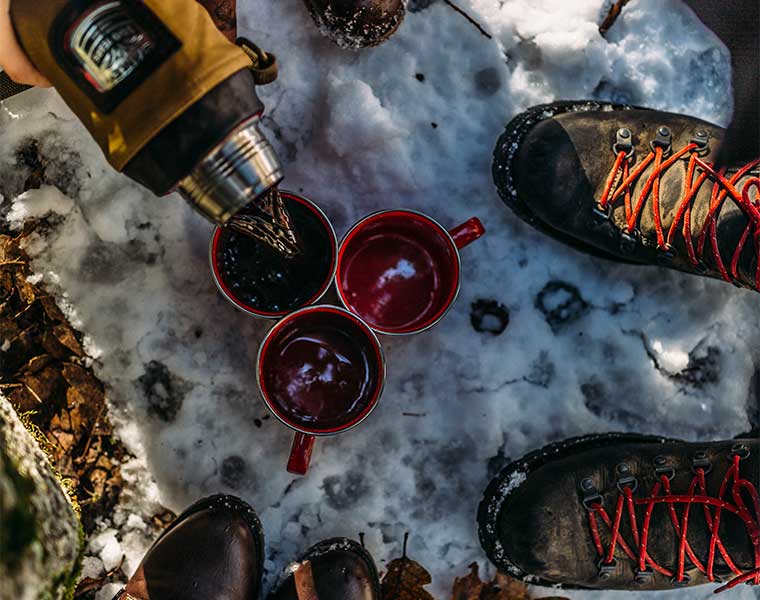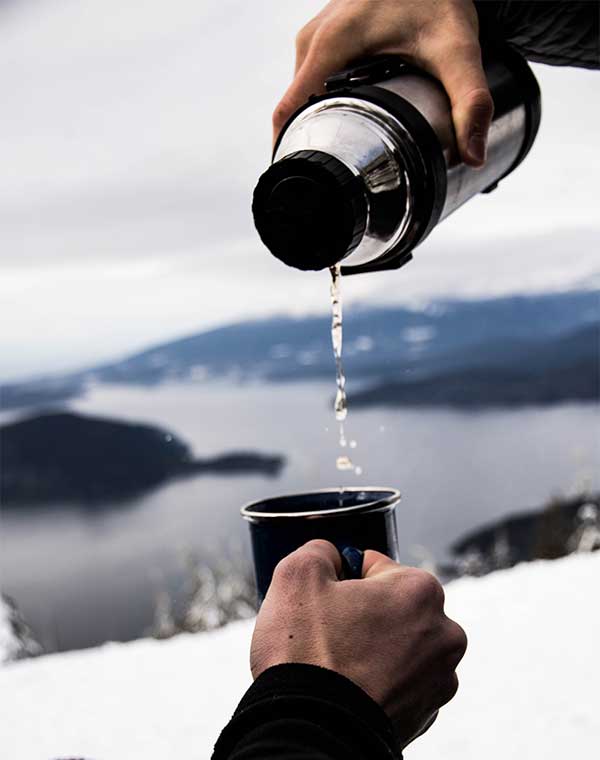The false myth of alcohol and cold: the problem of giving alcohol to a person with hypothermia.

A drop in body temperature, to the point of hypothermia, is a very serious and life-threatening risk.. This is why, once the threat is posed, it is logical to look for effective and rapid methods to counter it.
One of them is the belief that alcohol has the ability to raise a body's temperature. Especially those alcoholic beverages with a high alcohol content. We believe that drinking alcohol warms the body in "general".
Thus, in some cultures, in cases where the cold is uncontrollable, there is a tendency to drink to somehow counteract the low temperatures, however, a serious mistake is being made. In reality, alcohol is not capable of maintaining body temperature, let alone providing the help needed to cope with hypothermia.
Why does alcohol make us feel hot?
Before understanding the negative effects of alcoholic beverages on a person with a disability, it is necessary to hypothermiaIt is essential to recognise the reasons for the problem. These are based on a false sensation of heat. So why does it occur?
The answer lies in the fact that the subjective sensation of heat or cold depends on the nerve endings located in the skin, which are sensitive to temperature as such. They are responsible for the sensation of heat or cold.
Alcohol, on the other hand, is capable of producing vasodilation. Vasodilation means that the blood vessels increase in diameter so that more blood can flow through them.
When alcohol is drunk, the skin arteries dilate and therefore more blood reaches the skin. This results in skin that is warmed by the increased blood flow, and at the same time stimulates heat-sensitive endings.
However, while this sensation of warmth is felt, technically, it is merely a fictitious one. A person may feel "hot", but this is only happening on the skin, not in the rest of the body.
Dangers of mixing alcoholic beverages with hypothermia
Alcoholic beverages have throughout history caused serious accidents and all kinds of inconveniences, if not drunk at the right time. When the body shows early symptoms of hypothermia, this is only reinforced.
The reason for this is not to resort to an action that does nothing more than give the body a false sense of warmth. If you do this, you are only deceiving the body, and distracting it from the serious consequences that a drastic drop in temperature can have.
Drinking alcohol will not help anyone to resist the cold. So we must begin to eliminate this false belief. A belief that has even led to death by mistakenly believing that drinking large quantities of alcohol can stop hypothermia.

A false perception of heat in the body is stimulated.
False sensations create a great danger in the human body. Not only are we avoiding what is really happening, but we are also encouraged to downplay the importance of the matter. With alcoholic beverages to increase the heat, this is exactly what is happening.
An important part of preventing the body temperature from dropping to the level of hypothermia, or becoming more severe, is to establish the temperature at a normal level through a series of warming measures, such as wearing warm, dry coats or drinking warm beverages.
But when you drink alcohol and you start to feel warm very quickly, hypothermia is not expected to occur.
The body is exposed to extreme consequences of hypothermia.
If you drink something with a high alcohol content, the sensation of heat will initially go to the cheeks or nose. Because the vasodilator effect of alcohol causes the blood to flow to the external capillaries, i.e. "warm" skin, but what happens to the rest of the body if it is still exposed to the cold?
What happens is that they are completely exposed to hypothermia. Including the vital organs, this represents a major and threatening health risk, which can even lead to death by frostbite.
Thus, we are not talking about a body suffering from the regular consequences of hypothermia such as shivering, clumsy movements or lack of coordination. Instead, it will quickly be confronted with much more serious symptoms such as shallow breathing, stiff muscles and a lower pulse rate that can lead to loss of consciousness.
May induce unconsciousness
When drinking alcohol, especially high alcoholic beverages, we reach a state of relaxation that can lead to loss of consciousness as such. If a person shows symptoms of hypothermia, a feeling of "wanting to sleep" may occur, which will be enhanced by drinking alcoholic beverages. This entails a great risk, as we will be at the mercy of a situation that we cannot control and we will not be in a position to stop the advance of the cold.
For this reason, it is necessary to use measures that can actually increase the body's heat, such as drinking warm drinks or avoiding clothes wet.
READ ALSO:
Fastpacking is not about going faster. It's about going lighter.
If you come from classic trekking, this is the next step: learning to move with less weight,
more fluid and enjoying every kilometre more.
Join the Outsiders Newsletter and start discovering what lightness feels like.
